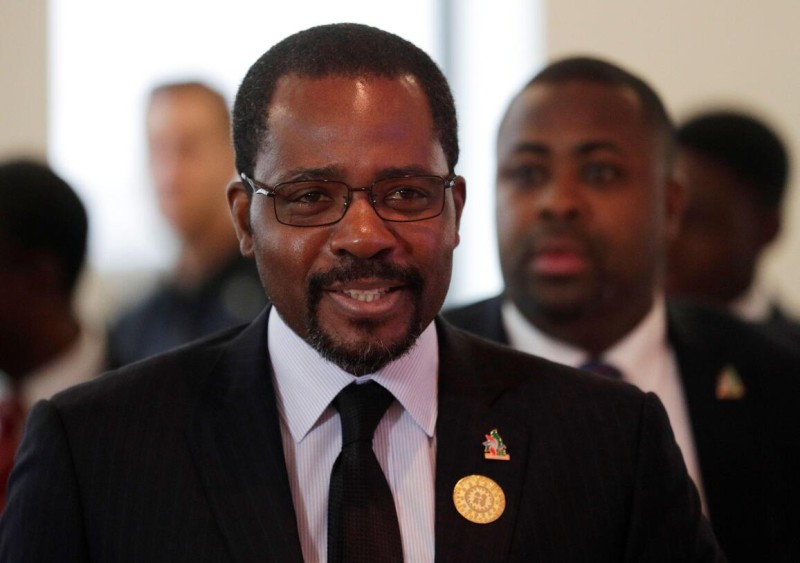Bogus copyright infringement complaints, made under the U.S. Digital Millennium Copyright Act (DMCA) and sent to the host web servers of news outlets, have resulted in articles being taken offline for weeks at a time. Complainants, sometimes using fake identities, post and backdate fake articles on which to base their claims.
At least five articles about Gabriel Mbaga Obiang Lima, the son of Equatorial Guinea’s president and its new minister of planning and economic diversification, and the attorney NJ Ayuk have been targeted by such complaints. Three came in the last month, all targeting articles on the digital news website Diario Rombe that were jointly published with OCCRP.
Obiang, who was previously Equatorial Guinea’s oil minister, worked with Ayuk, the founder of Centurion Law Group and the African Energy Chamber, in a professional capacity.
A 2019 article in South Africa’s Mail & Guardian, which reported that Ayuk was convicted of fraud in the U.S. in 2007 and investigated in Ghana for money laundering in 2015, is one of the earliest examples of articles that were attacked using the DMCA tactic.
The Mail & Guardian concluded that the complainant used a fake name, and though the article was taken down by the newspaper’s server Linode, it was eventually reinstated after a drawn out process. The Mail & Guardian described the copyright complaint as a “censorship attack.”
Similarly, the U.K.-based outlet Climate Home News received complaints in November 2022 over two stories about Ayuk’s short-lived partnership with two United Nations agencies, which referred to Ayuk as a “fraudster.” DMCA complaints prompted server Amazon Web Services to issue a warning to Climate Home, which took down the articles for weeks until it could resolve the issue.
“We are proud of our robust and hard-hitting reporting and had never been accused of plagiarism before,” Climate Home editor Megan Darby told OCCRP. “These bogus allegations look like a devious tactic to suppress independent journalism.”
Most recently, in January and February two complaints were sent to Diario Rombe’s server Cloudfare and another to Google over stories about Obiang and Ayuk. Google preemptively removed one of the articles from its search results, but reinstated it after Diario Rombe filed a counter-notice. Amazon Web Services told reporters that once a counter-notice is received, “the original claimant has 10 business days to file a lawsuit against the counter-noticing party” otherwise the content must be reinstated.
At the time of publication, Cloudfare had not taken any action against the articles.
It is unclear who is filing these complaints. OCCRP wrote to the complainants at the email addresses provided in the claims, but received no responses.
Ayuk has been in a long-running dispute with Diario Rombe and its editor, Delfin Mocache Massoko, and OCCRP. In a string of statements, Ayuk accused Massoko of extortion, bribery, fraud and racism. In December, a South African high court confirmed an earlier ruling that Ayuk’s statements were defamatory, and told Ayuk to cease publishing them. An appeal confirmed the defamation.
Massoko said the DMCA complaints were intended to “intimidate” independent journalists and could potentially “demolish many years of work.”
Ayuk and his company Centurion did not respond to questions from reporters, but his legal representatives said allegations against him were part of a “smear campaign” and that neither he nor his lawyers had “engaged in any wrongdoing.”
Obiang did not respond to a request for comment.
OCCRP published a story earlier this month about a Spanish reputation management firm which used a similar technique of DMCA complaints to help clients, some of whom were criminals, remove negative stories about them.



